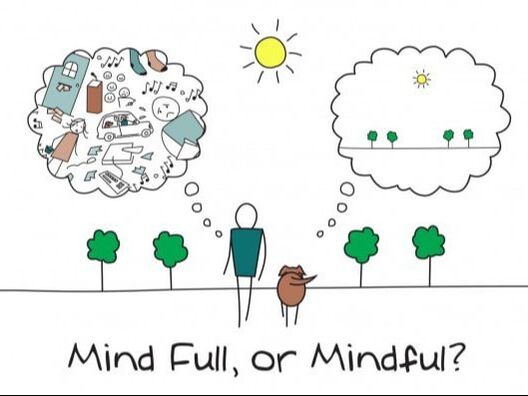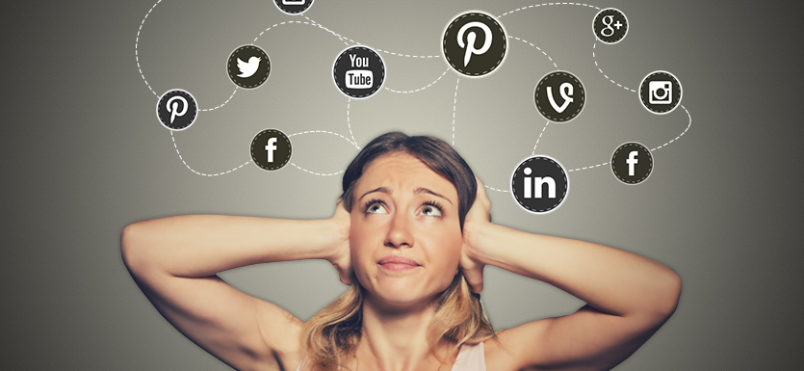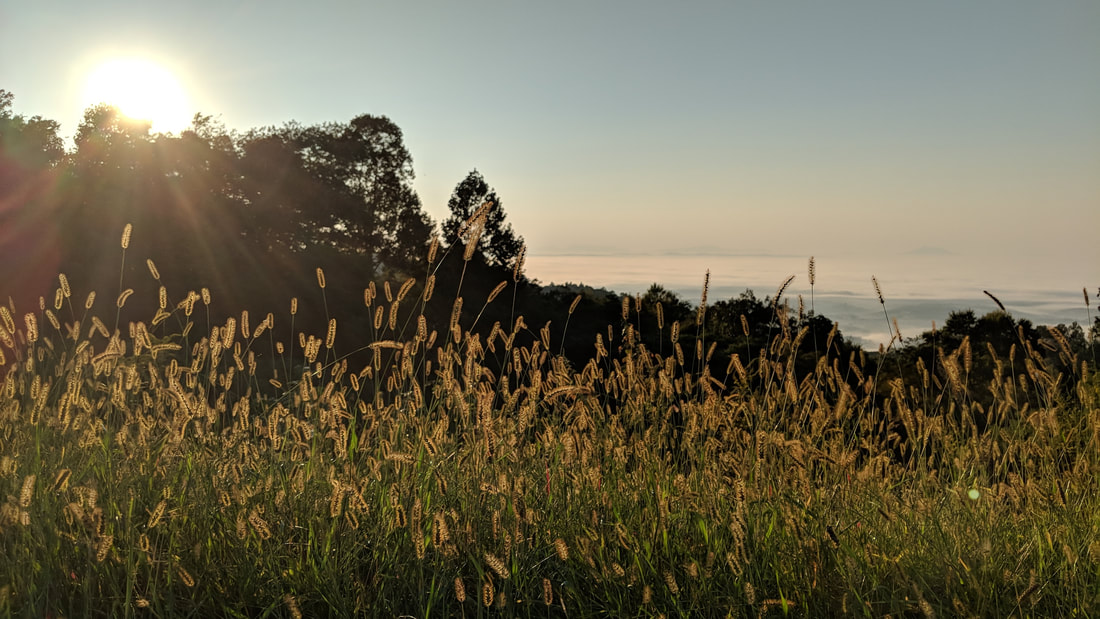|
A 6 minute read
-------------- Living with ADHD by Tracy O'Connell Many of you know me as ”Coach Tracy” or the “Crossfit Athlete”. But, what many of you don’t know about me is that I have ADHD. Attention Deficit and Hyperactivity Disorder is a term that is used in conversations loosely. Kinda like when people say they are starving or are OCD. I often hear adults say, “I forgot my keys, my ADHD is kicking in.” Its strange how these terms have crept into everyday life to cover ourselves in a jokey way, but in all honesty, living with ADHD is no joke. ADHD is a neurological condition that impacts executive function, working memory, impulsivity, focus, distractibility, and emotional health. If you meet me in person, on the outside it appears that I am just a high energy kinda gal. But, what is really going on is that I feel like I have a motor running from the time I wake up in the morning until I collapse in my bed. It is the only way I can function. Sometimes I hear my colleagues, friends, and family say “you just never stop and why can’t you just relax?” This often puzzles me too. I want to sit and watch TV or a movie or read a book for a long period of time, but it is really hard to do that. You see there are three types of ADHD.
I like to describe ADHD like this. If you were to look inside my brain it would be like opening up a very disorganized filing cabinet. There are plenty of files in there, but the pages are scattered everywhere and though some get in the right slots some are just lost and don’t know where to go. This makes being organized difficult. NOT impossible just probably way more effort than for the average person. It is helpful with technology, I have found ways to keep myself organized with google calendar, Siri reminders, and notes. Before that I had to write in a spiral notebook calendar which was great until I lost it then bought another one then found the old one and well which one should I use now? Yea, that is how it is. So while I have some inattentive ADHD, it's not my primary diagnosis. Mine is weighted heavily on the “hyperactive-impulsive type”. Some people see me as a lucky person to have such high energy and one that is gifted and can workout and never get tired. Well, that is not true. I do get tired, it just looks different. The side you don’t see is when I totally exhaust myself to the point when I collapse in a heap, tears streaming down my face, and just wanting to give up. Sometimes stopping is ok too. I get it, you have to slow down, but then I begin to beat myself up. My mind plays tricks on me. If I am not moving I have way too much time to think about what I need to do better. I am my own worst enemy as my Dad would say. So many negative thoughts enter and it becomes debilitating. Another difficult thing are conversations. I try to be a good listener, but if I didn’t work out and burn off some energy, forget it I have very little ability to settle and focus. I can’t sit still, and my mind is finishing your sentences and growing impatient with what you have to say. Over time I have had to learn to really focus on what people are saying. I remind myself to stay calm, breath slowly and listen. So what seems to be a simple task for most, for those of us with ADHD is exhausting. My ADHD was pretty much in check as a child. I grew up in a family that athletics was the usual. So it was no surprise that I found a sport that I loved and that kept my ADHD hidden for the most part. I mean in the 70’s it wasn’t really a thing in girls to be diagnosed with ADHD. As a kid, my parents didn’t know what to do with me. So they put me in gymnastics. I started at the age of six. By the time I was nine years old I was training twenty hours a week. It worked. They could tolerate me, and I was happy to be in motion. Gymnastics saved me. It was when I would take a break that I drove my mom and dad nuts. I did gymnastics until I was twenty-one years old. But then… I stopped doing gymnastics. I was completely lost. So… I tried to do different things like bodybuilding which was ok, but wasn’t quite intense enough. Then I ran a few marathons, but quickly lost interest, I also become distracted easily while running and would find myself falling off my pace due to random thoughts. Once I had my children I was very busy and there was no time for exercise. For ten years I was focused on keeping my youngest daughter alive (she has Down Syndrome and had seven open heart surgeries by the age of eleven) and keeping my oldest daughter focused on achieving her dreams as an elite figure skater. As a wife, mom, and teacher I was no longer living for me. I was frustrated with my lack of ability to focus, and I became depressed. Then something happened, my husband and I decided to try Crossfit.It changed my life, who knew that exercise was just the prescription I needed for my ADHD? As a child, I didn’t know that gymnastics was the key to keeping me mentally and physically healthy. I started Crossfit in January of 2014 and never looked back. It keeps me active and focused. Being fit has so many benefits, for me, it is far better than having to take medication for my hyperactivity and inability to focus. As I became more involved in Crossfit it lead me to have a need for better nutrition. When I started tracking my nutrition it was solely for looking fit and improving my performance. But then…I learned that when I reduced my sugar intake, decreased the amount of gluten I was eating and increased my fiber intake I could focus better. I truly gained control on so many levels. Tracking food is a game changer for people with ADHD. Finding out how you react to certain foods can be life-altering. I had no idea that gluten and sugar increased my anxiety and decreased my attention. Life is full of ups and downs that is for sure. Finding a way to cope through diet and exercise can allow us to be physically and emotionally fit for life. A 5 Minute Read
-------------------------------------- The influence of social media on our self-esteem by Carrie Jones, MA, LPC It is pretty likely that many of you found the PLT Nutrition & Fitness group through social media. I know I did. I creeped on a few Cross Fit and weightlifting athletes on Facebook and Insta, from there I experimented with a few other online nutrition programs and even tele-coached with a well-known athlete from Texas. Late last year I stumbled across PLT, and boy am I forever grateful I did. No one else out there rises to this level. NO ONE. The positivity in this community is infectious…complete strangers love on and support one another. Our world needs more of this… However my stumbling into PLT resulted from years of trying to lose weight, get fit and “feel good about myself in my own skin”. I lost days and weeks and years scrolling social media and being focused on a number on a scale, someone else’s weight loss progress and what their abs look like, what products they were or weren’t using. I fell for fads and lose weight quick schemes. I have been a group fitness instructor since I was 19 (my hobby profession) and spent years comparing myself to other instructors, trainers, exercise methods and even hating on Cross Fit to now being completely obsessed with it (in a good way). I was nervous, anxious, depressed and distracted. Most of this was fueled by messages on social media. This loss of time and obsession with “what everyone else is doing”, not to mention my mood instability, caused me to step back and really look at what was happening to my relationships and in my life. I started to research a bit into social media and its effects on our well-being, particularly our emotional well-being. The School Counselor/therapist (my real profession) in me began to find some staggering statistics. We are now referred to as “The Anxious Generation”. Why? Because of technology and our inability to form quality relationships with others. We are lacking love, respect, and human contact. We are inundated by social media messages telling us we need to have more, do more and be more. 40 million people in the US alone are diagnosed with some type of anxiety disorder. This increase is not due to something in the water or food or genetic malformations. It is because of our constant need to check our phones and see what Suzie is doing and how perfect her house is, how much weight she has lost, her new outfit and how successful her kids are… All while not realizing that Suzie is probably suffering too. See, the images we see are just that…images. They are not always real. They are open to interpretation. And most of the time people are only posting the good stuff. So all we see is the good stuff and our brains are hard wired in a way that when we see these things over and over again, we begin to believe that no one else has any bad stuff. Then I think about our kids and how all this affects them. Their brains (specifically the prefrontal cortex) are not fully developed and reason goes right out the window with them, so how do they handle these messages? Well, for the 8% of children diagnosed with anxiety, most develop symptoms before age 21, 1 in 5 college students have anxiety (diagnosed or undiagnosed) Because of the messages they are getting, most kids tell me that looking at other peoples stories, makes them feel they can never live up or be good enough. So how do we cope with all the messages we are getting? We need to use what we learn from THIS group every day: eat right, drink your water and exercise. Exercise itself is actually a behavioral intervention used to treat anxiety and depression, and it also helps to release the “feel good” endorphins in our brains. Additionally, it helps to take our mind off of our worries while we are moving. We need to love the number on the scale RIGHT NOW. We need to appreciate how far we ran or how much weight we lifted today even if it was not our best or as heavy as someone else. We need to appreciate the journey of our own progress and get real: with ourselves and with our friends, family and loved ones. We need to talk to the people in our lives in real time and with a loving heart. If that is not enough, seeking our professional help is okay. Finding a good therapist is worth its weight in gold. Teddy Roosevelt said “Comparison is the thief of joy.” We need to put our devices down and separate ourselves from social media and stop comparing our lives to those of others. One of the first things I did to separate myself was track my usage (like my food) and reduced my number of minutes by 5 minutes each day until I had a reasonable amount of time. It was a struggle at first, but I was able to re-connect with my husband and children in those extra minutes every day. And in those precious minutes, I began to realize that my life was better than those I was watching. I got real, I stopped comparing myself to everyone else and started to love who and what I am. A 3 minute Read
--------------------------------------------------------------------------------------------------------------------------------- Having personally battled with mental health issues since childhood, I was eventually diagnosed with clinical depression and Bi-polar disorder. As a result of the depression and bi-polar I had very low self-esteem and self-worth. I was on medications for a number of years but due to life changes and loss of insurance I had to stop taking them. In 2004 I had a major episode and was hospitalized, I was put back on medication which I continued to take for many years. Eventually, believing I was well enough to stop taking my medications, I stopped. Gradually over the years things deteriorated and eventually it was suggested that I go to the doctor and restart my medication. Refusing to accept this, I knew there had to be better options than being on medication all the time. I began to research and learn how food effects our bodies, gut and brain, as a whole. I decided to eliminate gluten and within two weeks I was starting to notice a change, physically, mentally and emotionally, my husband commented how different I was. I have been gluten free for almost six years now and I feel so much better; mentally, physically and emotionally. I no longer have the brain fog, I no longer feel fatigued and I no longer have the mood swings and negative thinking that I did before. Its very personal but having gluten for me is life and death (hence hospitalization), and I am so glad I have figured that out. I have also discovered there are other foods my body responds negatively too as well, such as corn, dairy, rice, and peanuts. I have found that I feel so much better following a Paleo diet, when it comes to mental clarity, emotional well-being and physical health. For me following a Paleo diet is so important, helpful and key. Working out, has also been a HUGE help for me. When I lift weights, run, walk, hike, or whatever other physical activity I decide to partake in, it is time for me to do my "mental filing", time for me to "clear my head", "focus on the WHY", push out any negativity and sort out things that are bothering me. Getting my nutrition, physical health, and mental clarity/health in order has helped me feel more confident and happier. I deal with anxiety as well but have learned to manage it for the most part. Managing my diet and food selection has helped by managing my diet and food selection. I find the added control enables me to reduce most of my anxiety Over the years I have learned to listen to my body, we must listen and learn what our bodies need. What works for one person, what works for me, may or may not work for the next person. We each must be in control of ourselves and our own bodies. We can use food as medicine, put good in, get good out. We are what we eat. I love fresh fruits, veggies, clean proteins like chicken, eggs, egg whites and my chocolate Paleo protein powder. (I make it almost daily and it is like having a milk shake, just a Paleo version.) Thank you for your amazing support and starting and growing PLT. I am so happy to be a part of such a great community. I am so thankful for PLT’s help, from the amazing coaches to the awesome community. Being part of the PLT helps me mentally a lot, and seeing other people achieve goals helps me to keep pushing and reaching to be a better version of myself. Things are better for sure and being part of PLT and having the nutrition aspect in balance has helped that so much and I am so thankful. Mindy Bolgrin |
AuthorI'm Paul Leonard, CEO & founder of PLT Nutrition. Categories
All
|
|
Current PLT Members
|
Quick Links
|
Connect With Us
|




 RSS Feed
RSS Feed
